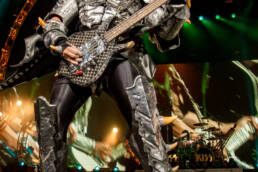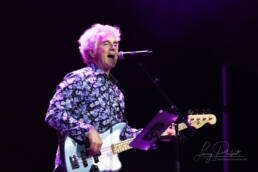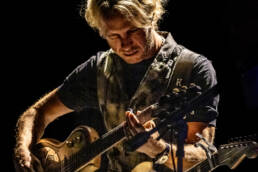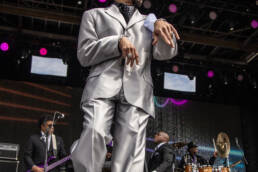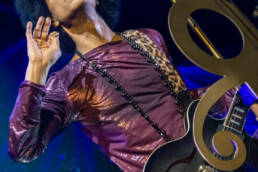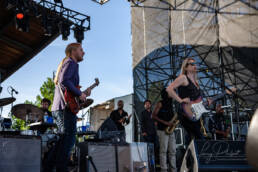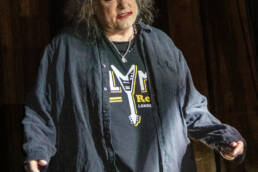John Fogerty: The Bayou Soul of Berkely
John Fogerty: The Bayou Soul of Berkeley
Imagine a kid in a Northern California garage, strumming a pawn-shop guitar, conjuring swampy riffs that felt like they drifted in from a Louisiana bayou. John Fogerty didn’t just find music—it haunted him, a gritty pulse that turned a suburban dreamer into rock’s rootsy poet. His career’s a stormy tale of triumph, betrayal, and a voice that could howl through the fog, leading Creedence Clearwater Revival to glory and beyond. This is the story of a man who made the mundane magical, spinning tales of rivers and rain that still echo across generations.

The Spark That Lit the Fire
For John Fogerty, music was a calling born of restless curiosity. Growing up in El Cerrito, California, he was a shy kid hooked on the raw twang of Hank Williams and the electric snarl of Howlin’ Wolf. At 12, he traded chores for a Silvertone guitar, teaching himself chords while his brother Tom banged on drums. It wasn’t fame he chased—it was the sound, a way to bottle the mystery of the American South he’d never seen. Playing dives as a teen, he felt the pull of something bigger, a gritty alchemy of rock, blues, and country that drove him to form Creedence. Music was his rebellion against a quiet life, his ticket to a world he’d only imagined.
A Life Shaped by Sound
John Cameron Fogerty landed on June 28, 1945, in Berkeley, California, the middle of five boys born to Galen and Lucile Fogerty. Raised in working-class El Cerrito, he dodged a broken home—his parents split early—and found solace in records. With Tom, he gigged as The Blue Velvets in the late ’50s, then as The Golliwogs, before Creedence Clearwater Revival (CCR) hit in 1967. Married to Martha Paiz in 1965, he had three kids before their 1980s divorce; he wed Julie Kramer in 1991, adding four more. A draft dodger who served in the Army Reserve, he turned Vietnam’s shadow into anthems. Sobered up in the ’90s, he’s still a road warrior, his growl intact.
The Career That Soared
Fogerty’s legacy splits between CCR and solo grit. With Creedence (1967-1972), he wrote, sang, and played lead on classics like Bayou Country (1969) and Cosmo’s Factory (1970). Post-split, he dropped Blue Ridge Rangers (1973), Centerfield (1985), and Revival (2007), proving he didn’t need a band to shine.
Bandmates and Collaborations: In CCR, he led brother Tom Fogerty (rhythm guitar), Stu Cook (bass), and Doug Clifford (drums)—a tight unit until egos imploded. Solo, he’s leaned on sidemen like drummer Kenny Aronoff. He’s jammed with Springsteen (“Fortunate Son” live), duetted with Foo Fighters, and covered Leadbelly.
TV and Film: “Proud Mary” rolled in The Big Lebowski, “Fortunate Son” raged in Forrest Gump. He’s rocked The Tonight Show, voiced himself on Family Guy, and starred in Sound City (2013). His Wrote a Song for Everyone (2013) special was a roots revue.
Awards and Honors: With CCR, he’s got a Grammy for Best Contemporary Folk Album (Blue Moon Swamp, 1997). The Rock and Roll Hall of Fame took them in 1993; solo, he’s nabbed Americana Music nods. In 2010, Billboard named him a Legend of Live.
Biggest Songs:
- “Proud Mary” (1969) – Fogerty’s own, it hit No. 2, a riverboat rocker.
- “Bad Moon Rising” (1969) – His pen again, No. 2, eerie and eternal.
- “Fortunate Son” (1969) – Fogerty’s anti-war howl, peaked at No. 3.
- “Centerfield” (1985) – Solo Fogerty, No. 44, a baseball hymn.
The Shadows of Controversy
Fogerty’s life’s a legal and personal swamp. CCR’s breakup in 1972 was a bloodbath—Tom quit in ’71, and John’s control-freak rep alienated Cook and Clifford. Fantasy Records owner Saul Zaentz locked him in a decades-long royalties war; Fogerty refused to play CCR songs live for years, calling it “blood money.” A 1985 lawsuit claimed “The Old Man Down the Road” ripped off his own “Run Through the Jungle”—Zaentz lost, but the feud birthed Zanz Kant Danz, a jab Zaentz sued over (and won).
His brother Tom’s 1990 death from AIDS—contracted via a transfusion—left scars; John blamed Fantasy’s greed for Tom’s uninsured fate. In 2004, a Creedence “reunion” gig without him (Cook and Clifford as “Revival Revisited”) infuriated Fogerty, who called it “a travesty.” Politically, Trump’s 2020 use of “Fortunate Son” drew a cease-and-desist—Fogerty loathed the irony. Yet, he’s kept the faith, reclaiming his catalog in 2023.
The Voice That Endures
John Fogerty’s a rock ‘n’ roll alchemist—a guy who turned Berkeley asphalt into bayou gold. Music wasn’t his dream; it was his soul, a gritty lens on a world of struggle and hope. From CCR’s reign to solo redemption, he’s weathered betrayal, loss, and lawsuits with a rasp that still cuts deep. As he tours into 2025, that swamp-soaked wail—part preacher, part outlaw—reminds us why he’s a giant. Fogerty didn’t just write songs; he carved myths, one muddy riff at a time.
